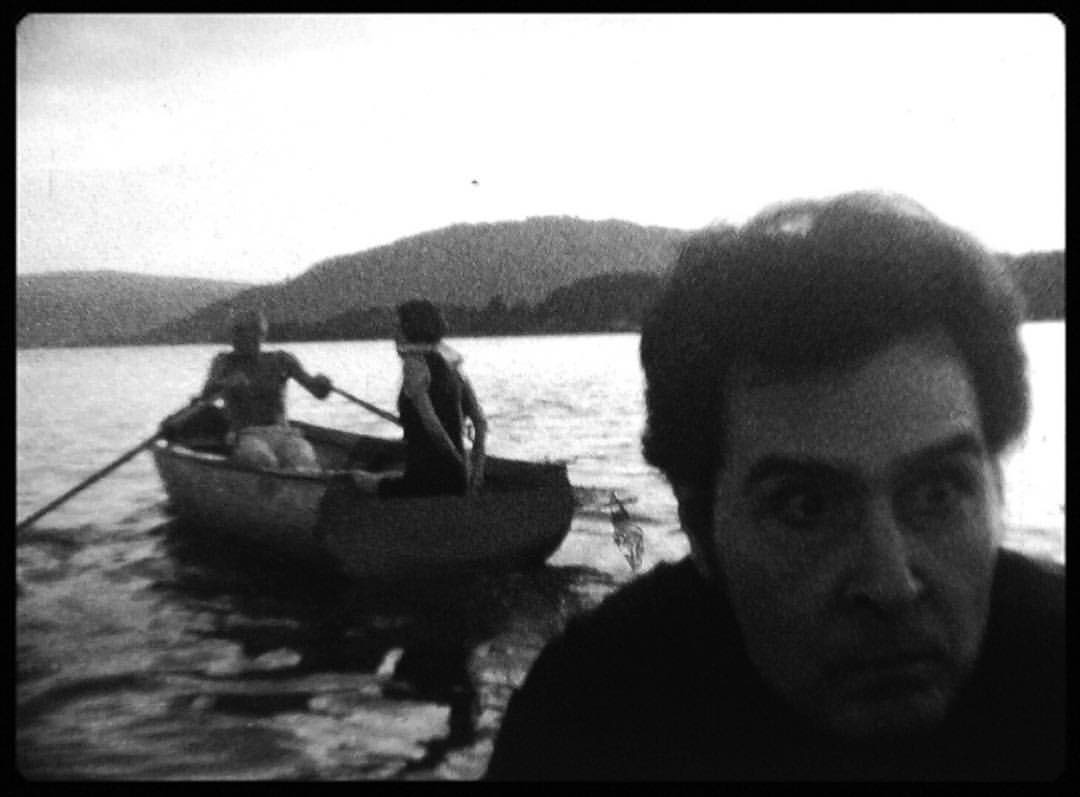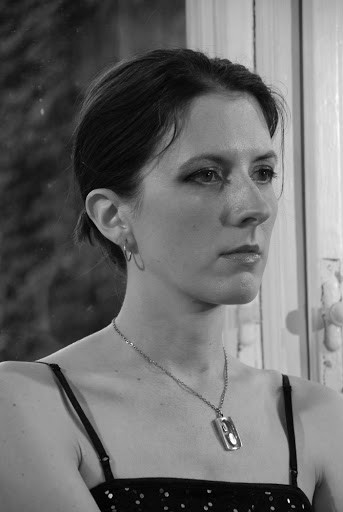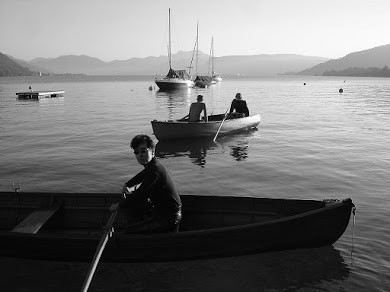Tav Falco, long known for his game-changing musical ventures with the Panther Burns, will forever be associated with Memphis, for it was here that he and Alex Chilton collaborated in the late 1970s to found the group. But ultimately he doesn’t feel bound to any one place or time. “I’m an American living in Europe,” he says. “I’ll always be that. I’m not trying to be what I’m not. But even in Memphis, I was always on the outside looking in. And that is the fate of artists in many cultures. In fact, it could be the job of the artist. To exploit this perspective.”

Indeed, he was very much an outsider when he first arrived here. “One day I just rode my Norton motorcycle up to William Eggleston’s house on Central Avenue, after I’d moved here from the hills of Arkansas. And he comes out of the house, and greets me in the driveway, and we spoke a few words and he said, ‘Well come into the lab, let’s just start right now,’ and that’s what we did.” Falco also learned from Carl Orr, another photographer/filmmaker living in Memphis at the time. “Both of them had the idea that if you want to learn something about film and images, just get into the middle of it and start doing it. Like William Burroughs said, you ask enough questions, you’ll find the answers. Don’t worry about the answers, just ask the questions.”
While Falco has labored for decades asking the musical question, “got WHAT??”, he has of late returned to his original passion for the image, culminating in Wednesday’s Memphis premiere of his new feature length film, Urania Descending, Pt. 1, the semi-mythic tale of an American woman caught up in a dark Viennese mystery. “It’s predicated on the serial films of Louis Feuillade, Les Vampires, or the Fantômas series, based on the intrigue crime novels of the time. These were an inspiration in part for my film. In this particular triptych of stories, black and white is the only possibility. Color would have killed it.”

“I think of silent film as visual music,” he goes on. “If you add sound, it becomes something else. However, in my film, I have somehow captured the timeless, or outside-of-time, quality of silent cinema with sound effects. With no lip sync dialogue to speak of, but very little dialogue disembodied from the characters. Someone said, ‘The footsteps in your movie are almost another character unto themselves.’ It has an atmosphere and an ambiance that is really off the grid, outside the box. People somehow get drawn into this movie, even though the production values are nothing like you see today.”
But, lest we think of it as pure nostalgia, he adds: “It’s not a period piece. It’s set in the near future. In a place like Europe, Austria, Italy, Baroque architecture exists right alongside very state-of-the-art, contemporary architecture. So it’s not a museum piece. It’s a world in which the past has been cultivated, where that which was built to last for generations and generations is not destroyed and not discarded, but cultivated and lived in and maintained alongside truly modern architecture. So this is a movie where the past overtakes the present and the present overtakes the past. It is a continuum.”

Falco’s partner in intrigue was Richard Pleuger, the director of photography. “He’s a film correspondent from Munich, Germany. I met him after a Panther Burns gig in San Francisco in the 80s. He was a student at the San Francisco Art Institute. And we became immediate friends. He came to Memphis in the 80s and made ‘Shade Tree Mechanic,’ a short film dealing with one of the songs I had recorded. He came to Austria to do the camera work on Urania Descending, and he had a lot of good ideas about lighting. He knew I wanted an expressionistic atmosphere. We both are totally into the films of Louis Morneau , G.W. Pabst, all the great expressionistic filmmakers.”
Summing up, Falco says: “This is not a profound movie, on the surface. This is not a grand exercise in theatrics, or classic acting, or realistic acting. Far from it. It’s more expressionistic acting. It’s acting that suggests something. I think it’s convincing, but that’s not the point. It’s trying to make a gesture, working with gesture rather than psychological verisimilitude of some kind. It’s not a psychological drama. It’s symbolic. It’s a little bit of an exercise in semiotics, signage. It’s like what a poem can do.” And when it’s over, don’t expect any tidy sense of resolution. “People will come away from the theater,” Falco reflects, “with a certain residual experience.”
Urania Descending premieres Wednesday, June 21, 7:00 PM at Studio on the Square. Tickets are available from the Indie Memphis website.